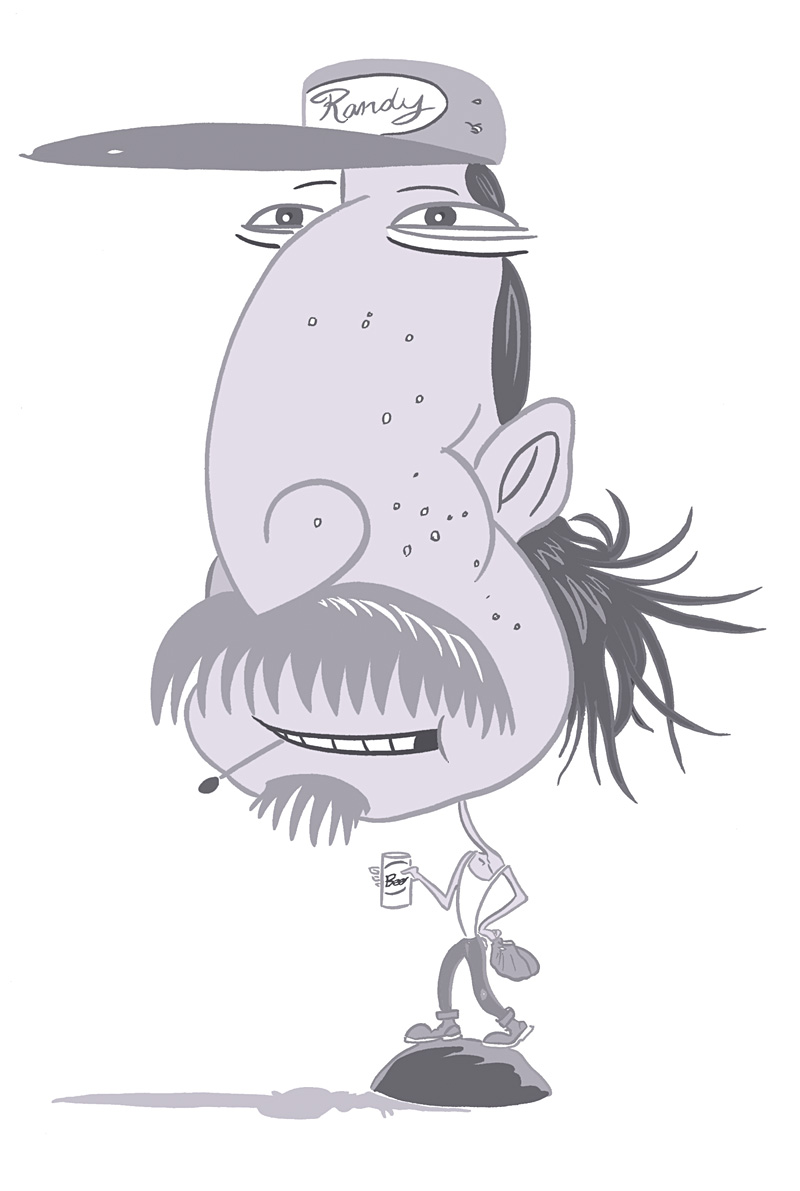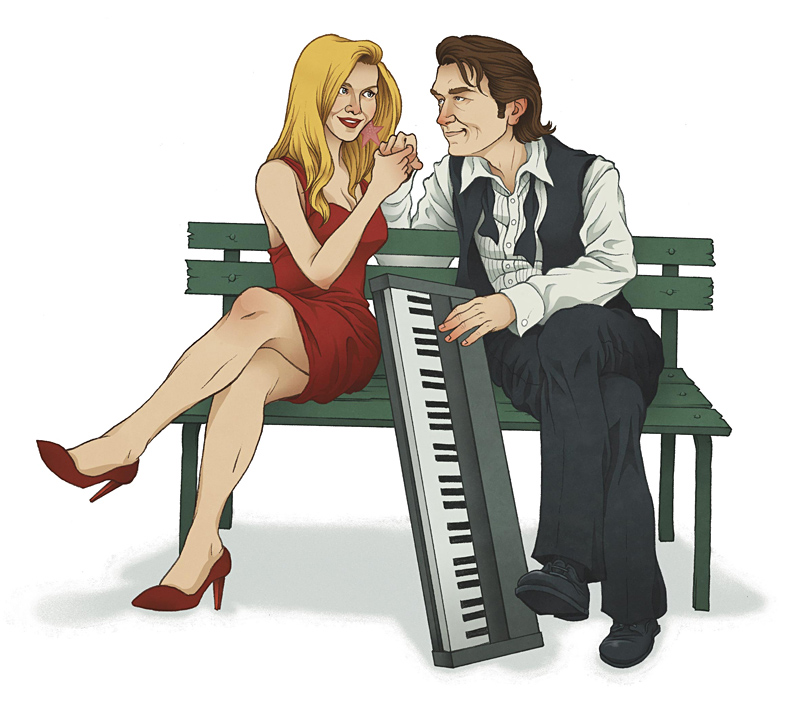With Randy Johnson retiring last week and Edgar Martinez coming up well short in the Hall of Fame balloting, it appears Johnson will be the first player to have spent a critical portion of his career with the Mariners to enter Cooperstown. Whether Johnson will choose to be enshrined as a Mariner is somewhat uncertain, but we’re betting that since he came into his own as a Mariner, won his first Cy Young Award in Seattle, and spent more time and earned more wins here than with any other club, the odds will tilt in our favor over Arizona (where he won four more Cy Youngs and his only World Series).
Johnson is generally regarded as the best left-handed power pitcher in baseball history. But we’ll remember him for his singular appeal to what we’ll politely refer to as baseball’s black-and-blue-collar subset of fans, known in snottier circles as “white trash.”
Baseball fans have long loved their chew-dipping, stubbly-faced, beer-drinking, Charlie Hustle crackers. Look no further than Pete Rose and the John Kruk/Lenny Dykstra–led Phillies teams of the early ’90s for evidence. But Johnson took that appeal to a deeper, dirtier level, especially when he played for the M’s. Plenty of guys wore mullets and mustaches during Johnson’s prime, but no one combined the two with such extreme enthusiasm. His mullet was curly, greasy, and unruly, and his ‘stache looked as though it’d been ripped off the Marlboro Man’s face.
The Big Unit oozed hard-rockin’, Camaro-drivin’, cigarette-burnin’, hot-tub-in-the-garage, Clapper-over-light-switch, vinyl-covers-on-the-couches, chain-wearin’ chic. While his Mariner teammates lived in tony Eastside McMansions, Johnson lived in what is now referred to as Newcastle, and what was then referred to as Renton (or Renton-ish, anyway). Add his crater face and intimidating-yet-soft-spoken demeanor to the mix, and he’d have looked just as at-home in a workingman’s onesie under the hood of your car as on the mound for the M’s. That as much as anything else cuts to the core of Randy Johnson’s enduring appeal.








